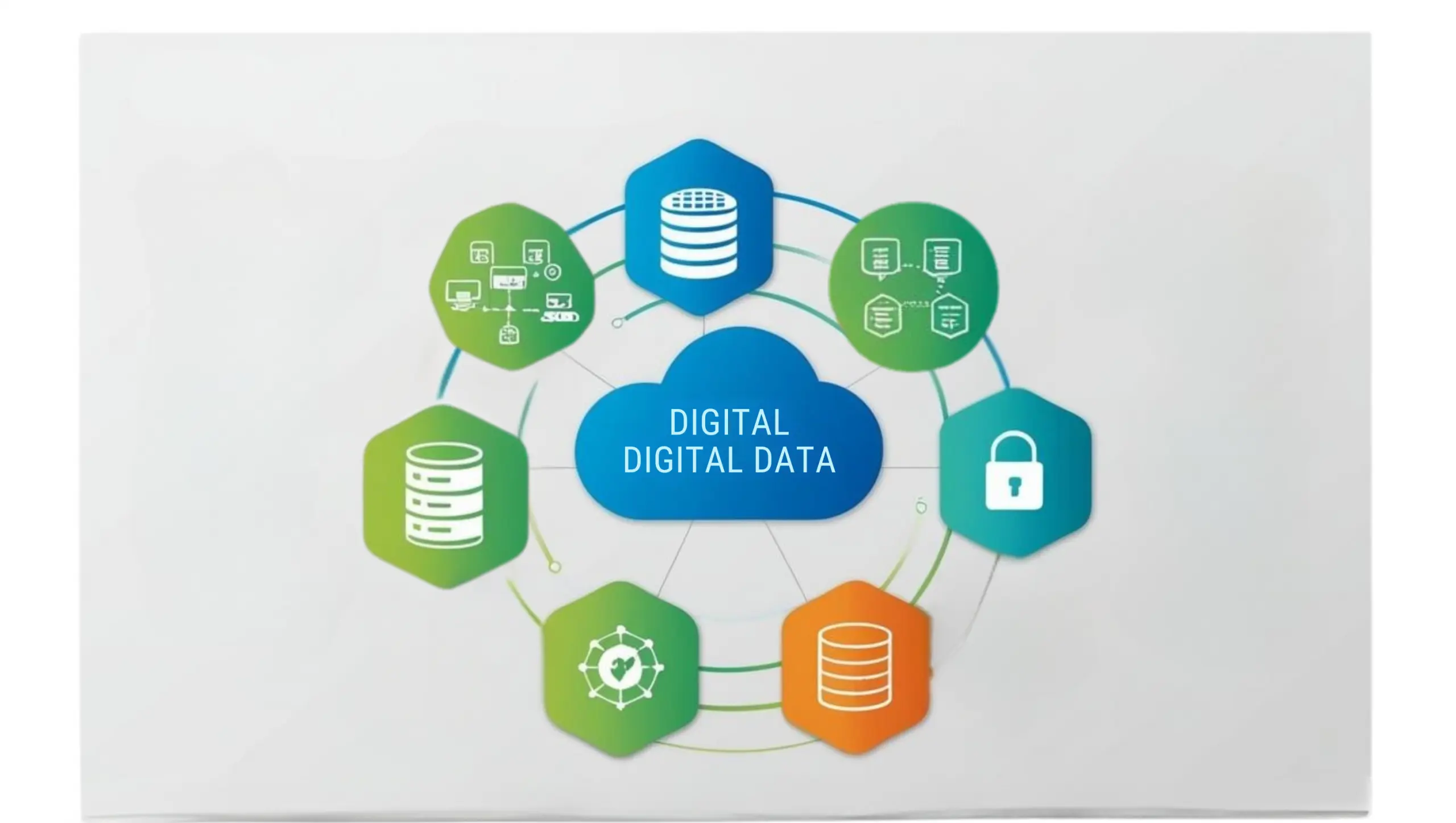Why Digital Data Management Is Essential for Secure and Compliant Business Operations
Today’s businesses run on digital data — from internal communications and customer interactions to financial records and web analytics. Whether you’re analyzing a sales report or storing sensitive client files, every digital touchpoint involves data that must be properly managed, secured, and protected from misuse.
For CIOs and CISOs leading enterprise strategy, this guide outlines the core role of digital data in business growth and security — and how to manage it with privacy and compliance in mind.
What Is Digital Data?
Digital data is any information processed or stored in binary format — the language computers use. Your organization interacts with three main types:
- Structured data: Organized in spreadsheets and databases, such as customer records, payroll systems, and product inventories.
- Unstructured data: Unorganized but rich in value, including emails, chat logs, support tickets, and customer feedback.
- Semi-structured data: Hybrid formats like JSON and XML, which include some structure (e.g., event logs from user behavior or IoT devices) but are more flexible than traditional databases.
Why Digital Data Management Matters for Enterprises
Managing digital data effectively is about more than just storage — it impacts every area of business performance and cybersecurity.
1. Enable Data-Driven Decisions
Modern enterprises rely on analytics to guide strategy. According to S&P Global, 69% of organizations say data is essential for long-term success, with nearly half relying on it for most major decisions.
With centralized, accurate data, IT leaders can support faster, more informed business choices — from market expansion plans to IT infrastructure investments.
2. Strengthen Customer Insights
Every customer interaction generates data: website clicks, email responses, support tickets, and more. Analyzing these data points helps personalize services, streamline support, and refine targeting.
For example, analyzing support ticket patterns can reveal systemic issues in your product, while social media sentiment analysis can guide brand positioning and PR response strategies.
3. Stay Competitive in a Data-Driven Economy
Enterprises that leverage data outperform those that don’t. A 2023 survey showed 90% of businesses rank data and analytics as a top priority, yet only 37% felt they were effectively improving data quality.
As a CIO or CISO, enabling secure, centralized data access gives your organization a competitive edge — whether through predictive analytics, AI adoption, or faster product iterations.
4. Reduce Costs and Improve Efficiency
Data analytics drives automation. From optimizing supply chains to streamlining customer onboarding, data helps you identify inefficiencies and reduce manual overhead.
Research shows that businesses using data effectively can cut operational costs by 10% and improve efficiency by 12%. Predictive maintenance, for instance, can reduce machine downtime and resource waste.
5. Mitigate Cybersecurity and Fraud Risks
Improper data handling can lead to serious consequences. In 2024, the average cost of a data breach in the U.S. reached $9.36 million. Meanwhile, fraud schemes and ransomware attacks continue to evolve.
Proactive data analytics helps detect anomalies early — from unusual login patterns to fraudulent transactions. Organizations that use fraud analytics experience 47% fewer losses, according to the Association of Certified Fraud Examiners.
6. Maintain Compliance and Protect Privacy
With privacy laws like GDPR, CCPA, and India’s DPDPA in effect, enterprises face increasing pressure to manage personal data responsibly. Penalties for non-compliance can reach millions.
For instance, GDPR violations can result in fines of up to €20 million or 4% of global revenue. Meta was fined €1.2 billion in 2023 for mishandling EU user data. Strong data governance is no longer optional — it’s a legal and reputational necessity.
How 689Cloud Helps You Protect and Manage Digital Data
At 689Cloud, we understand the growing challenges enterprises face when securing sensitive files and communications. Our secure file sharing platform helps you manage digital data at every stage — from internal collaboration to external distribution — with enterprise-grade encryption, access control, and audit trails.
Here’s how we support secure digital data management:
1. Secure File Sharing with Encryption
689Cloud uses end-to-end encryption and granular access controls to ensure only authorized users can view or share files. Whether you’re sending confidential board reports or client agreements, you can track access and revoke it in real time.
2. Compliance-Ready Access Controls
Role-based permissions, expiration dates, and user authentication help ensure your file sharing practices align with ISO 27001, GDPR, and other global standards — keeping data both private and compliant.
3. Full Audit Trails for Transparency
Track who accessed which file, when, and from where — helping your security team monitor usage and flag suspicious behavior before it becomes a breach.
4. Secure Collaboration with External Partners
Whether you’re working with vendors, clients, or remote teams, 689Cloud allows you to share files securely without risking data leakage or unauthorized access. You can limit downloads, set passwords, or even restrict printing.
5. Cloud Storage with Regional Control
Store files on secure servers located in jurisdictions with strong privacy laws — including the U.S., Singapore, and other global hubs. Choose where your data resides to meet local regulatory requirements and minimize risk exposure.
Final Thoughts: Take Control of Your Digital Data
Digital data fuels enterprise innovation — but only when it’s handled with care. CIOs and CISOs have a critical role to play in establishing secure, compliant, and efficient data practices.
With 689Cloud, you can protect your organization’s most valuable digital assets while enabling collaboration and reducing risk. From secure file sharing to data visibility and audit logging, we help enterprises like yours gain control, ensure compliance, and move forward with confidence.
Ready to secure your data? Talk to our team about enterprise file sharing solutions tailored for your business.

